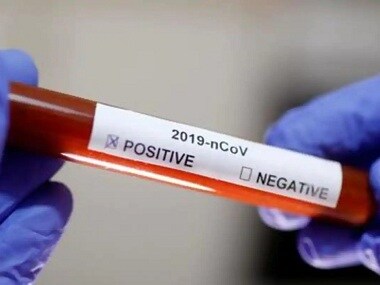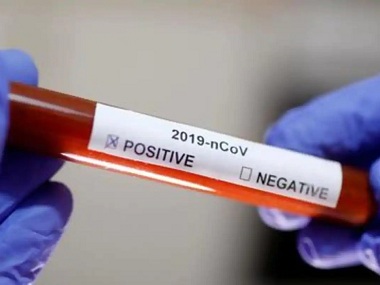The novel coronavirus has now infected over 800,000 people worldwide and claimed the lives of close to 39,000 people. The virus is particularly frightening since it has never been seen before. There are no drugs that are currently approved to treat it - everything is in an experimental stage and treatment is focussed on managing symptoms. [caption id=“attachment_7997561” align=“alignleft” width=“380”]  Representational image. PTI[/caption] The world is gradually locking itself down completely while it eagerly awaits an effective drug or vaccine. What are the top candidates currently? WHO’s SOLIDARITY trial is at the forefront of this search. Consisting of over 45 countries, including India, the massive study will look at four pre-existing drugs that have shown some action against the SARS-CoV-2 virus. These include:
- Remdesivir, originally a drug designed for Ebola.
- Chloroquine and Hydroxychloroquine, the anti-malaria drugs that have gained celebrity status after a small French study showed positive results and US FDA approval.
- A combination of ritonavir and lopinavir, which are HIV drugs. A Lancet study had generated interest, but a subsequent NEJM study has cast a shadow of doubt on the effectiveness.
- Antiretroviral drugs plus interferon beta. Interferon beta is used as a first-line treatment against multiple sclerosis.
The trial started on the 28th of March and the whole world is eagerly awaiting results. The widespread view is that Remdesivir holds the most promise.
Other therapy options
Over 35 entities are in the pursuit of creating a vaccine for COVID-19. Of note are:
- Moderna: Clinical trials will begin shortly on mRNA-1273, the experimental name of the vaccine. Moderna was already working on coronaviruses that were responsible for SARS and MERS. Thanks to this, they had a head start in developing a vaccine for the novel coronavirus
- Johnson and Johnson is reportedly working on a vaccine that can start human trials in September. The Trump administration just signed a $456 billion deal with the company to provide assistance to the research.
Other drug options:
- Favipiravir: Developed by the Japanese company Fujifilm, this influenza drug performed favourably when administered to 300 patients in China. It reduced the severity and duration of the disease, but more research is needed.
- Kaletra/ Aluvia: Some studies have shown that this HIV drug was used on an emergency basis during the early days of the epidemic in China. Further research needs to be conducted to test effectiveness; so far the results are mixed.
- Convalescent plasma therapy: Some reports have suggested that using the blood plasma of recovered patients could have an impact on COVID-19. A report by Chinese scientists suggested 91 out of 245 people showed improvement in a trial. Plasma therapy is a fine stopgap measure while a more comprehensive treatment is found since it can be implemented quickly. However, it is unclear so far if it will work. New York announced that it would experiment with plasma in late March to see if it is an option.
For more information, read our article on Passive Antibody Therapy_._ Health articles in Firstpost are written by myUpchar.com, India’s first and biggest resource for verified medical information. At myUpchar, researchers and journalists work with doctors to bring you information on all things health.


)

)
)
)
)
)
)
)
)



